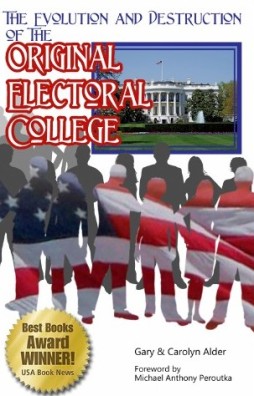Excerpt – Uriah Tracy
There is another view of the Constitution which has a reference to the general subject before us; and that is, the caution exhibited with respect to the introduction of amendments. In an instrument so important, and containing many features new, if not to the world, at least to ourselves, although we might approve of its principles, yet experience might discover errors as to the mode devised for carrying those principles into effect. Hence it was the part of wisdom and caution to provide for such alterations in practice as would give the fairest operation to principles, without incurring the confusion and agitation incidental to a general Convention. But, lest the daring and restive spirit of innovation should injure or destroy, under the specious name of amendment, that same wisdom and caution hath provided salutary checks.
“Two-thirds of both Houses of the Congress shall deem it necessary” to propose amendments; and three-fourths of the State Legislatures shall ratify such amendments, before they acquire validity. I speak now, sir, of the mode which has always been, and probably will be, put in practice to obtain amendments. The other Constitutional mode is equally guarded as to numbers, but, as it has no relation to the subject now in debate, may be laid aside. “Two-thirds of both Houses,” must, I think, on every fair principle of construction, mean two-thirds of all the members. The number of Senators is thirty-four, two-thirds being twenty-three. And as there is no representation from New Jersey, the number of Representatives is one hundred thirty-six, two-thirds being ninety-one.
My impressions are, sir, that this amendment cannot constitutionally be proposed to the State Legislatures unless it is agreed to in the two Houses by those numbers twenty-three and ninety-one, respectively. This is a Constitutional point, which, I am told, has never been agitated, but is certainly worthy of attention. If the construction should prevail that two-thirds of the members present, at any time, might propose amendments, the consequence is that twelve Senators, being two-thirds of a quorum, and forty-eight Representatives, being a similar two-thirds, might propose any and the most important amendments. I am aware sir, that it may be said such propositions are not final, they may yet be ratified or rejected by the State Legislatures. But the spirit of the Constitution seems to require two-thirds of the nation, acting by its proper organs, to propose amendments; and that, in so interesting a subject as a Constitutional alteration a less number should have no authority.


